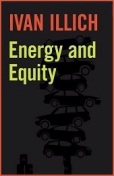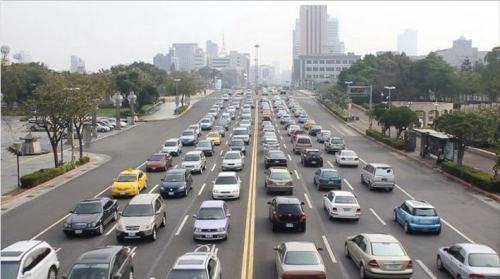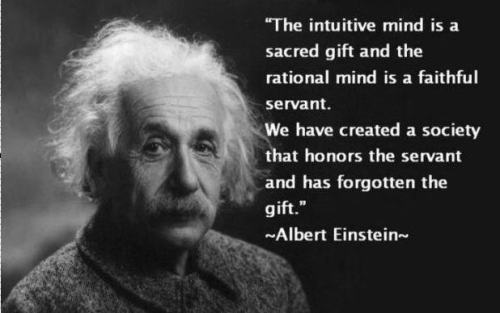First-Line Resources
- - > Helsinki Project - - > Mission Statement - - > Facebook - - > Twitter - - > EBT Program Library - - > Equity photo album - - > Equity/Transport videos - - > World Streets on EquityAdvisory Council
Latest Tweets
Tweets by EquityTSister Programs
 From World Streets
From World Streets- NOW!! 17 plus 1 reasons why I am prudently optimistic about the World Climate / Mobility / Work Transition for 2021/22
- “The Future Office Is Not About Place”
- *** WORLD STREETS INTERNATIONAL ADVISORY COUNCIL *** (to be updated, with full approval) _ _ _
- SAFE CITY STRATEGIES : MANAGING THE TRANSITION. (Working notes for a wide-open 2022 Collaborative Thinking Exercise)
- NEW 2030 ICELAND CLIMATE ACTION PLAN ANNOUNCED
- From Australia Archives: 41 Measures to Manage Traffic Congestion in your City
- World Streets Open 2021 Team Problem-Solving Initiative: Climate/Emergency Mobility/Space Jobs/Work Streets/Cars Private/Shared Vision/Strategy Equity/Women Action/Manage
- Why There Will Be Far Fewer Cars, But Many More Miles Driven
- Op-Ed: Coronavirus has exposed the fragility of auto-centric cities
- A CRISIS IS A TERRIBLE THING TO MISS
 From Safe Streets
From Safe Streets- Transportation Innovation and Reform: Finding the Way to Social Sustainability
- World Transport Policy & Practice – Vol. 18, No. 1
- We’ve never needed geniuses more than now.
- Weekend Musing: Less, More and Mozart
- Transport, Equity and Safe Streets: A Tale of Two Cities
- Late Night Thoughts on Equity from Helsinki
- Editorial: On the plane to Helsinki
- Crowdsourcing Equity/Transport/ Helsinki
- Equity/Transport 2012: Road map for Helsinki Stage 1
- Helsinki Focus Group Workshops – First guidelines
Useful Links
(Section to follow)Equity Reading Room
Faces of Transportation Equity in the USA: Crystal McMillan
Posted in Discriminatory, Poverty, testimony, users, YouTube
Honk! The future for transport in Helsinki? (Have a stupid weekend)
As we get together here in Helsinki to swap ideas about what a more equitable transportation system might look like in a city, what if we take a moment this  weekend day to travel back a bit in time and examine some of the more flagrant concepts floated by visionaries and accepted by many in the past? We here at World Streets always have problems with these “cities of the future” visions, not so much because they are almost always consistently wacky in some totally weird unreal-world way, but because they tend to project things so far into the distant, almost always thoroughly magical future, that they get us off the hook for doing anything about it TODAY. So sit back and relax, dear citizens and voters, and realize that you don’t have to do anything other than to passively await the future, and let the benevolent forces of the economy and technology solve the problem for you.
weekend day to travel back a bit in time and examine some of the more flagrant concepts floated by visionaries and accepted by many in the past? We here at World Streets always have problems with these “cities of the future” visions, not so much because they are almost always consistently wacky in some totally weird unreal-world way, but because they tend to project things so far into the distant, almost always thoroughly magical future, that they get us off the hook for doing anything about it TODAY. So sit back and relax, dear citizens and voters, and realize that you don’t have to do anything other than to passively await the future, and let the benevolent forces of the economy and technology solve the problem for you.
Posted in equity, Mental maps, Old Mobility, Stupid weekend, Worst practices
New Social Equity Agenda for Sustainable Transportation
 Todd Litman and Marc Brenman discuss in this report the importance of incorporating social equity and environmental justice objectives into transport policy and planning analysis. It recommends a more systematic and comprehensive analysis framework that considers how planning decisions affect transport system diversity and therefore the transport options available to non-drivers, plus various external costs that harm disadvantaged people. More comprehensive analysis can help identify more integrated, win-win solutions, which achieve a variety of social, economic and environmental objectives. Continue reading
Todd Litman and Marc Brenman discuss in this report the importance of incorporating social equity and environmental justice objectives into transport policy and planning analysis. It recommends a more systematic and comprehensive analysis framework that considers how planning decisions affect transport system diversity and therefore the transport options available to non-drivers, plus various external costs that harm disadvantaged people. More comprehensive analysis can help identify more integrated, win-win solutions, which achieve a variety of social, economic and environmental objectives. Continue reading
Posted in Analysis, cost-benefit, Report, Research
The Stakeholder Dialogues – First guidelines
 The Stakeholder Dialogues or conversations are a central pillar of the March 2021 collaborative enquiry: Examining the prospects for Equity-Based Transportation Practice in Helsinki. This open dialogue is hosted by the Helsinki Department of City Planning and Transportation in collaboration with a wide range of local stakeholder groups. Continue reading
The Stakeholder Dialogues or conversations are a central pillar of the March 2021 collaborative enquiry: Examining the prospects for Equity-Based Transportation Practice in Helsinki. This open dialogue is hosted by the Helsinki Department of City Planning and Transportation in collaboration with a wide range of local stakeholder groups. Continue reading Posted in democracy, Mental maps, public consultation, Workshop
Equity and common sense: What is the non-car majority and how do we serve them best?
 When it comes to investing in the transport sector, we make continue to make some strange choices. In city after city around the world we are spending hard-earned taxpayer money for a distinct transportation minority of all citizens and voters. What’s going on here? Continue reading
When it comes to investing in the transport sector, we make continue to make some strange choices. In city after city around the world we are spending hard-earned taxpayer money for a distinct transportation minority of all citizens and voters. What’s going on here? Continue reading
Posted in all-car, democracy, empowerment, equity, New Mobility, partnership, public consultation
Ivan Illich on Energy and Equity
 In 1974 the genius, erudite, courageous thinker and social visionary Ivan Illich wrote a small paradigm-challenging book entitled “Energy and Equity”, the entire contents of which is presented here. The entire second half of the book is given over entirely to a reflection on transportation and equity, so what could be more appropriate to this project as we get underway for us to have some understanding of what this great mind had to say on our topic – a full generation ago. Continue reading
In 1974 the genius, erudite, courageous thinker and social visionary Ivan Illich wrote a small paradigm-challenging book entitled “Energy and Equity”, the entire contents of which is presented here. The entire second half of the book is given over entirely to a reflection on transportation and equity, so what could be more appropriate to this project as we get underway for us to have some understanding of what this great mind had to say on our topic – a full generation ago. Continue reading
Posted in democracy, empowerment, energy, environment, philosophy/attitude
Master Classes – Working notes (for comment)
 Note to the reader: What follows here is still very rough and as you can surely see I am still struggling with it. But I think the pieces are starting to fall into place, and we should have something we can work with and share in the next day or two. It is always like this when you are trying to create a new pattern. So have a look and tell us what you think we need to do. Thanks for being critical and creative, and check back here in a few days for a more definitive posting. Continue reading
Note to the reader: What follows here is still very rough and as you can surely see I am still struggling with it. But I think the pieces are starting to fall into place, and we should have something we can work with and share in the next day or two. It is always like this when you are trying to create a new pattern. So have a look and tell us what you think we need to do. Thanks for being critical and creative, and check back here in a few days for a more definitive posting. Continue reading
Helsinki March 2012: Main events and project schedule
 The Helsinki open dialogue in which we are together engaged in investigating and commenting on the potential for (more) equity-based transport in Helsinki is taking place in seven main stages. The collaborative project is engaging as full partners a broad range of Civil Society groups as well as representatives of both public and private sector from both center city and outlying areas, with the core work and events taking place in the city over the month of March. As of this date the main project benchmarks look like this: Continue reading
The Helsinki open dialogue in which we are together engaged in investigating and commenting on the potential for (more) equity-based transport in Helsinki is taking place in seven main stages. The collaborative project is engaging as full partners a broad range of Civil Society groups as well as representatives of both public and private sector from both center city and outlying areas, with the core work and events taking place in the city over the month of March. As of this date the main project benchmarks look like this: Continue reading
Posted in Conference, paradigm change, strategic planning, Workshop
Weekend pause: Equitable Music Flash from a Train Station in Helsinki
Posted in behavior, film, Music, social media
1 March 2012: Helsinki Equity/Transport project kicks-off
 Today is the opening day of the 2012 Helsinki Equity-Based Transportation peer review program, the first in what we hope will become a growing thread of cooperating city projects querying the impact of first reviewing and eventually restructuring our city and regional transportation systems around the fundamental core principle of equity. You will find details on the EBT site at https://equitytransport.wordpress.com/ starting at noon today. Continue reading
Today is the opening day of the 2012 Helsinki Equity-Based Transportation peer review program, the first in what we hope will become a growing thread of cooperating city projects querying the impact of first reviewing and eventually restructuring our city and regional transportation systems around the fundamental core principle of equity. You will find details on the EBT site at https://equitytransport.wordpress.com/ starting at noon today. Continue reading
Posted in Finland, Participation, pattern recognition, Workshop
Thinking on Equity/Transport: Todd Litman, Canada
 We are inviting comments and background information on this our central concept behind this project, i.e., what is this thing we call transportation equity all about? We are looking for a variety of views and perspectives on our topic and not some kind of warm and glass-eyed unanimity. If we cannot handle contradictions and fuzziness, then we are not about to make headway with this one. This first note comes in from Todd Litman executive director of the Victoria Transport Policy Institute in Victoria Canada.
We are inviting comments and background information on this our central concept behind this project, i.e., what is this thing we call transportation equity all about? We are looking for a variety of views and perspectives on our topic and not some kind of warm and glass-eyed unanimity. If we cannot handle contradictions and fuzziness, then we are not about to make headway with this one. This first note comes in from Todd Litman executive director of the Victoria Transport Policy Institute in Victoria Canada.
Posted in Bibliography, Thinking equity
Gauging the socio-economic impacts of future urban transport initiatives
As we set out on the first of the city programs organized in this pioneering  Equity/Transport series, the Helsinki project that gets underway on 1 March, it is useful to bear in mind that to fully understand the concept of equity as a major driver of policy in the sector requires that we move well beyond the more traditional techniques of investment and impact analysis such as cost-benefit analysis. The authors take direct aim at this issue when they state: “The classical cost-benefit analysis, then, needs to be replaced by a socio-economic impact assessment methodology (SEIA) to get a measure of expected benefits and costs to different groups.” So without further ado let’s turn to see what the authors have to share with us on this important topic.
Equity/Transport series, the Helsinki project that gets underway on 1 March, it is useful to bear in mind that to fully understand the concept of equity as a major driver of policy in the sector requires that we move well beyond the more traditional techniques of investment and impact analysis such as cost-benefit analysis. The authors take direct aim at this issue when they state: “The classical cost-benefit analysis, then, needs to be replaced by a socio-economic impact assessment methodology (SEIA) to get a measure of expected benefits and costs to different groups.” So without further ado let’s turn to see what the authors have to share with us on this important topic.
Continue reading
Posted in Analysis, cost-benefit, externalities, sustainability
Message from Kaohsiung
Posted in M2W, paradigm change, pattern recognition
If Apple had invented the bicycle . . .
 Whatever could anything as abstruse as innovation, intellectual property (IP), patent protection and wall-to-wall lawyers have to do with down to earth issues like equity and transportation? Or for that matter, bicycles? Let’s have a look at what the Dutch economist and journalist Mathijs Bouman has to tell us about why you can ride any old bike you care to today. (And why you might not be able to, tomorrow.) Moral of the story: Plenty of choice is the key to an equity-based transportation system.
Whatever could anything as abstruse as innovation, intellectual property (IP), patent protection and wall-to-wall lawyers have to do with down to earth issues like equity and transportation? Or for that matter, bicycles? Let’s have a look at what the Dutch economist and journalist Mathijs Bouman has to tell us about why you can ride any old bike you care to today. (And why you might not be able to, tomorrow.) Moral of the story: Plenty of choice is the key to an equity-based transportation system.
The Invisible Cyclist: Transportation Justice
The transportation justice movement calls into question government subsidies of transportation forms that tend to benefit largely white and affluent urban and suburban commuters and advocates for better transit options and safer streets for poor people and people of color. This population of cyclists is largely uncounted, unrecognized, and unrepresented. Put simply, these are the invisible cyclists. In many cases, invisible cyclists are the constituents of transportation justice organizations, but only insofar as they are poor people of color. As cyclists, they remain invisible.
Posted in Discretion, Fairness, Minorities
Equity/Transport: View from the slums of Nairobi
We present this here as one of a series of postings which are intended to serve as food for thought and broader background on our topic as lived and seen from different angles and environments around the world, as we move ahead on the key cooperative program in Helsinki. Continue reading
Posted in cities, equity, international comparisons, sprawl
Equity-based Educational Reform in Finland
In the Helsinki stage of our on-going Equity/Transport program and process, it is particularly important that we have and share a clear understanding of the  manner in which the equity-base reform process has transformed Finland’s schools over the last decades from middling to world level (See OECD PISA results for verification). To this end we are gathering and presenting here a selection of reports and articles that help us in this respect. The following report was prepared by Mrs. Lorraine Frassinelli Ell in 2006, and while six years have intervened since she completed it, the paper still provides a strong synopsis and outsider view of the Finnish experience from someone working internationally in the field of educational measurement. Continue reading
manner in which the equity-base reform process has transformed Finland’s schools over the last decades from middling to world level (See OECD PISA results for verification). To this end we are gathering and presenting here a selection of reports and articles that help us in this respect. The following report was prepared by Mrs. Lorraine Frassinelli Ell in 2006, and while six years have intervened since she completed it, the paper still provides a strong synopsis and outsider view of the Finnish experience from someone working internationally in the field of educational measurement. Continue reading







